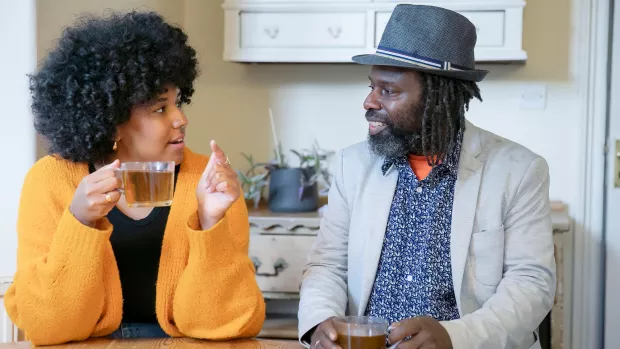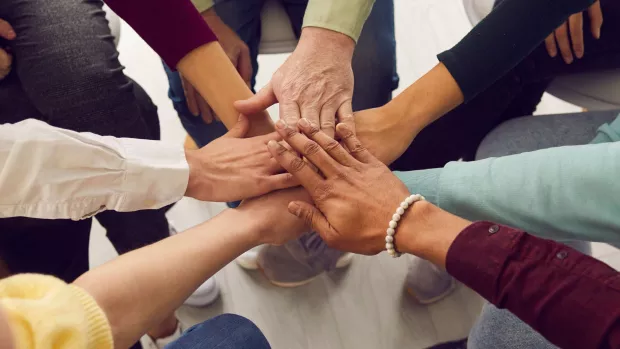
Co-production: the pros and pros
Craig Watson from Falkirk, Scotland lives with primary progressive MS.
For Co-Production Week, Craig explains what co-production is and how it benefits the MS community.
What is co-production? Let’s face it - it’s not a term most of us have heard of.
Co-production is people who use a service being consulted and included in developing projects that affect them – throughout the whole process.
This all sounds like focus groups - but it’s different. Focus groups tend to just list the “shoulda, coulda” issues that someone else addresses. Co-production goes further, with the team deciding on the best way forward and the service users participating in its delivery.
The term was first coined by Elinor Ostrom, in the’70s. Elinor was an economist at Indiana University. She used the word co-production to explain why crime rates rose when the police changed from walking the beat to patrolling in cars.
Working as a team
Co-production isn’t just a word or a concept. It’s a meeting of minds coming together to find shared solutions. When co-production works best, people who use services and their carers are valued by organisations as equal partners, can share power and have influence over decisions made.
Look at it this way - it’s the 3 Ds. Working as a team, you:
- Define - list the areas that need to be addressed
- Decide - agree on how best to address these areas
- Deliver - be part of the delivery of this way forward
What it means for the MS Society is that people with a connection to MS can help mould the way the MS Society works. You can make a difference. It shouldn’t stop at being an opportunity for you – it’s also an opportunity for you to make a difference. It’s a great way to help others.
My experience with co-production
Shortly after my diagnosis I went along to a Living Well with MS: Newly Diagnosed session where we learnt what to expect and how to deal with it. I could tell people with MS had been involved in creating the session - it was down to earth and what we wanted to hear. It wasn’t filled with what you should do and what you could do, but drew from lived experience from others who knew.
As someone with primary progressive MS (PPMS), I’m now helping the MS Society to hear from more people with this type of MS, as it can often feel like we’re underrepresented and outnumbered. This is a way those of us with PPMS can discuss our experiences, raise awareness of our needs and take part in co-producing MS Society services. It’s about finding a way forward and helping others by making sure the information and support from the MS Society is created with and for our community.
The pros and the pros of co-production
That’s not a typo - there are no cons! If you get the chance to participate, do it. I do and it helps.
You’ll meet others (virtually) with a connection to MS. A diverse group in terms of age, gender, location and experience – as this is the best way to get differing opinions and the develop a way forward.
With co-production, regardless of the type of MS or if you’re a family member or carer of someone with MS, there’ll always be a way to share your views and help create the right support. Co-production is a way to stay relevant and fresh, not old and static.
We don’t participate because we love the sound of our own voice, but because we want to help. It won’t give you a fat wallet, but you’ll feel it in your heart. And if you help just one person, that’s where you’ll feel it.
Do you have MS or care for someone who does? Could you share your experience, knowledge and skills to help shape services for people like you? Our experts by experience newsletter lists all the opportunities to help shape our work.



